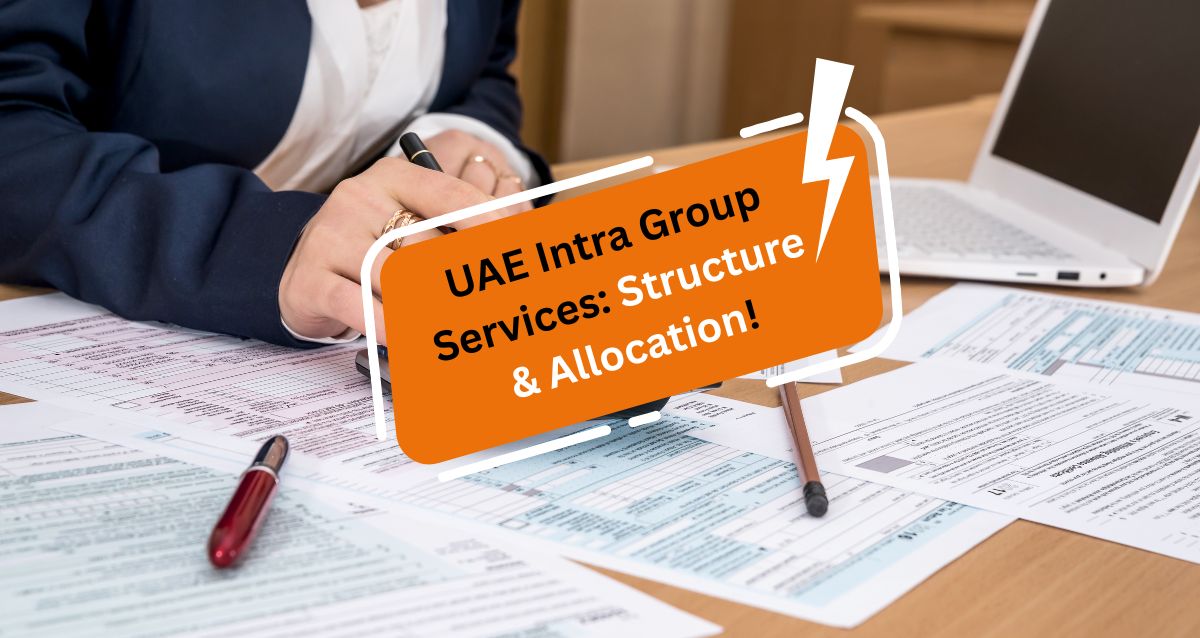UAE Intra Group Services: Structure & Allocation!
Disclaimer: This article is for general guidance purposes only and does not constitute legal or tax advice. Businesses are encouraged to consult a qualified tax advisor based on their specific facts and circumstances.
As the UAE Corporate Tax Law comes into enforcement in full, the group structures which is designed purely for getting operational convenience are now withstand to substance tests, Scrutiny on transfer pricing and Challenges in tax deductibility. One of the prime focuses for the Federal Tax Authority (FTA) is the Pricing and validity of service agreements within intra-group and the cost allocation basis between related parties.
Whether you are a holding group operating locally or a multinational company with a UAE subsidiary, it is very crucial to understand how to make, document and support intercompany service arrangements for both corporate tax deductibility and transfer pricing compliance
Acceptable Allocation Method as per UAE Corporate Tax Provisions:
- HR costs: Based on the headcount of employees
- IT license fees: Based on the number of users in each entity
- Admin support: Based on usage logs or respective department budgets
If these are done promptly, each entity can claim a tax deduction for its share of costs, assuming invoices are raised and backed by agreements.
Why Intra-Group Services Must Be Structured Properly?
Under Articles 26, 34 and 36 of the UAE Corporate Tax Law, any related party payment made for services must be:
- Incurred wholly and exclusively for business purposes
- It must be at arm’s length, fair market value
- Should be commercially rational and substantiated
Failure in properly structuring and maintaining these inter-company service arrangements may result in:
- Disallowance of corporate tax deductions
- Fines, penalties or adjustments under UAE Transfer Pricing rules
- Suspicion of base erosion or profit shifting
Common Types of Intra-Group Services
1. Management or Consultation Fees (group oversight, strategic direction, Professional services)
2. Shared Services (HR, IT, legal, compliance, etc.)
3 . Back-Office Functions (payroll, accounting, finance)
4 . Procurement and Logistics ( Sales and operations )
5 . Branding or IP Support (license fees, royalty payments)
These services are common across Free Zone and mainland businesses within their groups, but require clear documentation and should be justifiable.
Components of a Proper Intra-Group Services Agreement
Every intercompany services agreement should include the following:
1. Description of Services
- Clearly define the scope of services being provided.
- Avoid using generic terms like administration or support, or management. Be specific about the terms and conditions to be used in the agreement
2. Beneficiary Entity & Service Provider
- Identify who the beneficiary entity, service provider, and all the legal entities involved are. Must include their UAE registration details also.
3. Service Period & Frequency
- Monthly, quarterly, or annual provision and invoicing.
4. Basis of Charge
- Cost-plus mark-up
- Fixed price method
- Actual usage or allocation basis
The intra-company service arrangements should include an explanation of the allocation methodology used. (based on heads of account, revenue, hours of usage, etc).
5. Transfer Pricing Disclosure
- It should include a reference that services are charged following the OECD Transfer Pricing Guidelines and UAE CT Law Article 34.
6. Supporting Schedules
- Time sheets, percentage of allocation, or cost breakdowns must be maintained.
Real-World Example: Shared IT & HR Costs
A UAE-based headquartered group has three Free Zone companies:
- A logistics company
- A retail trading entity
- A group-level management company in a Free Zone
The management company incurs centralised IT and HR costs (ERP software, HR systems, outsourced recruitment). The allocation of these costs must be based on the actual benefit derived by each group entity.
Best Practices for Intra-Group Cost Allocations
1. Document Everything
- Keep the service agreements in written format and internal memos
- Retain evidence for actual services provided
2. Use Objective Allocation Keys
- Revenue, employee count, square footage, or user numbers should be allocated depending on the service type
3. Apply Consistent Markup
- A cost-plus mark-up of 5–10% is commonly accepted for low-risk support services
- A benchmarking study may be required for high-value services
4. Avoid Duplicate Deductions
- Ensure costs are not being deducted from both the books of the service provider and the beneficiary
5. Comply with TP Documentation Thresholds
If your UAE group companies' revenue exceeds AED 200 million in the year, you may need to maintain the Master File & Local File
Transactions between related parties must also be disclosed in the Corporate Tax return
FTA’s View on Arm’s Length and Business Purpose
FTA will only allow deductions for service fees if:
- There is adequate evidence for the benefit received by the paying entity
- The payment reflects the actual market value for that service
- The transaction must not be primarily tax-driven or for income shifting
FTA may challenge intercompany payments where there is :
- No actual service provided
- Services are duplicated or provided unnecessarily
- Service charges are arbitrary or excessive
- A UAE Free Zone entity is paying taxable income to a mainland company (or vice versa) without justification
How to Defend Intra-Group Charges During Audit
While FTA reviews your intercompany service charges, you should be able to provide:
- Signed service agreements
- Schedules on Cost allocation
- Evidence of service delivery (emails, reports, notes, time logs)
- Transfer pricing benchmarking reports (if applicable)
- Proof that costs were not capital in nature or disallowed under corporate tax law (e.g entertainment)
Flyingcolour Tax Consultant Advisory Support
At Flyingcolour Tax Consultant, we help UAE businesses:
- Prepare and review intra-group service agreements
- Prepare cost allocation models aligned with UAE Corporate Tax and Transfer Pricing rules
- Build strong supporting documentation to defend deductions
- File related party disclosures and structure Tax Groups (if required)
- Benchmark intercompany charges based on global databases
To learn more about How to Structure Intra Group Service Agreements & Cost Allocations in the UAE, book a free consultation with one of the Flyingcolour team advisors.
Disclaimer: The information provided in this blog is based on our understanding of current tax laws and regulations. It is intended for general informational purposes only and does not constitute professional tax advice, consultation, or representation. The author and publisher are not responsible for any errors or omissions, or for any actions taken based on the information contained in this blog.




